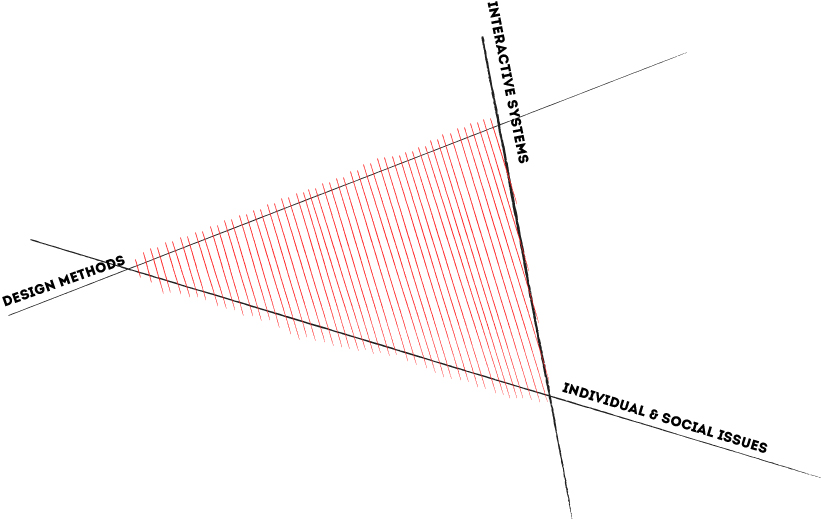Research in HCID covers a broad range of topics and design-orientated studies and interventions. We think of our work falling between three intersecting axes of research.

- The study of individual and social issues arising from and surrounding the proliferation of information and communication technologies.
- The development of design methods that enable us to engage with people and communities and explore new technological possibilities.
- The prototyping of interactive systems that use existing and novel technologies in response to real-world needs.
Individual and Social Issues
We study a wide variety of settings from the workplace to urban city farms. We aim to develop understandings of these settings and the unique issues and concerns that arise in them. In these studies, our emphasis is on the role technology plays or might play, and where there is scope for rethinking the relations between the social and technical.
Projects:
Select Publications:
Design Methods
We experiment with adapting or inventing new design methods that respond to the specific settings or people we work with. Our research that represents dementia care through using the medium of comics illustrates the innovative and exploratory nature of this work.
Much of our work with design methods also aims to involve a wider cross-section of people in design through participatory methods. Our research with people with aphasia, for example, experiments with different co-design approaches to give end-users greater influence over the design of their creative tools.
Projects:
Select Publications:
Interactive systems
Our research involes exploring both exisiting and new technologies for novel applications. We're motivated, in particular, to explore protype systems that support people in ways that meet their specific needs or that align with individual or communal values. Our projects with people with aphasia, for example has led to the design of new creative tools for writing and producing visual media.
Projects:
Select Publications: